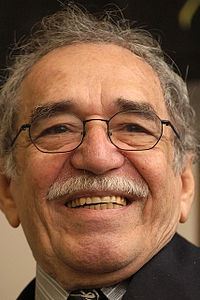 – அண்மையில் பாரதிதாசன்பல்கலைக்கழக உறுப்பு கலைமற்றும் அறிவியல் கல்லூரியில் (தமிழ்நாடு) நடைபெற்ற “தமிழ்க்கணினி இணையப் பயன்பாடுகள்” பன்னாட்டுக்கருத்தரங்கிற்குச் சமர்ப்பிக்கப்பட்ட கட்டுரைகள் ‘பதிவுகள்’ இணைய இதழில் தொடர்ச்சியாகப் பிரசுரிக்கப்படும். இவற்றைத் தொடர்ச்சியாகப் ‘பதிவுகள்’ இணைய இதழுக்கு அனுப்பி வைப்பதாக முனைவர் துரை மணிகண்டன் அவர்கள் தெரிவித்துள்ளார்கள். முதல் கட்டுரையாக திரு.சிவாப்பிள்ளை (கோல்ட்ஸ்மித் பல்கலைக்கழகம் லண்டன்) அவர்களின் கட்டுரை வெளியாகின்றது. – ஆசிரியர், பதிவுகள் –
– அண்மையில் பாரதிதாசன்பல்கலைக்கழக உறுப்பு கலைமற்றும் அறிவியல் கல்லூரியில் (தமிழ்நாடு) நடைபெற்ற “தமிழ்க்கணினி இணையப் பயன்பாடுகள்” பன்னாட்டுக்கருத்தரங்கிற்குச் சமர்ப்பிக்கப்பட்ட கட்டுரைகள் ‘பதிவுகள்’ இணைய இதழில் தொடர்ச்சியாகப் பிரசுரிக்கப்படும். இவற்றைத் தொடர்ச்சியாகப் ‘பதிவுகள்’ இணைய இதழுக்கு அனுப்பி வைப்பதாக முனைவர் துரை மணிகண்டன் அவர்கள் தெரிவித்துள்ளார்கள். முதல் கட்டுரையாக திரு.சிவாப்பிள்ளை (கோல்ட்ஸ்மித் பல்கலைக்கழகம் லண்டன்) அவர்களின் கட்டுரை வெளியாகின்றது. – ஆசிரியர், பதிவுகள் –
மொழிகலாச்சார வேறுபாடுகளுக்கு முக்கியத்துவம் கொடுக்க வேண்டியதை பிரிட்டிஷ் மொழியியல் அமைப்பு அடையாளம் கண்டு இவற்றை வருங்காலத்தில் மக்களுக்கு அடையாளம் காணடுபிக்க வேண்டும் என்ற தேவையை உணர்ந்து கொண்டனர். குழந்தைகளின் இரு மொழிஅறிவை கலாசார அறிவு சமூக வளர்ச்சி ஆகியனவற்றின் முக்கியத்துவத்தை கடந்த காலங்களில் தெளிவாக அறிந்து கொள்ளவில்லை. அதிர்ஷ்டவசமாக சமீப காலத்தில் UK மற்றும் பல நாடுகளில் மொழியியல் ஆய்வாளர்கள் இவற்றின் முக்கியத்துவத்தைக் கண்டறிந்து கல்வி கற்பிப்போருக்கும் பெற்றொருக்கும் இருமொழி ஆற்றல் பற்றிய முக்கியத்துவத்தை எடுத்துரைத்தார்கள். இது பற்றிய பல ஆய்வுக்கட்டுரைகள் பல நாடுகளில் பலர் எழுதி இருக்கிறார்கள். இரு மொழிஅறிந்த குழந்தைகளின் பள்ளிக்கூடப் பெறுபேறுகள் ஒரு மொழிதெரிந்த குழந்தைகளை விட மேலாக இருப்பதையும் அவர்களின் புரிந்துணர்வை மனப்பான்மையையும் அவர்கள் சமூகத்திற்கு நல உதவிகனைளச் செய்வதில் ஆற்றல் படைத்தவர்கள் என்பதையும் ஆய்வாளர்கள் கண்டறிந்தார்கள்.


